If your furry friend scratches nonstop, their discomfort might stem from an imbalance in their gut. Research shows that a healthy gut microbiome plays a vital role in skin health, immune function, and overall wellness. Specially formulated supplements can restore this balance, easing irritation and promoting comfort.
Many pet owners overlook the connection between digestion and skin conditions. Probiotics help by introducing beneficial bacteria to the digestive tract. These microbes break down food, absorb nutrients, and reduce inflammation that often triggers itching. High-quality products, backed by brands like Pet Honesty, ensure strains are effective and safe.
This guide simplifies how to choose the right solution for your companion. It covers science-backed options that support both gut health and skin comfort. You’ll learn how specific strains target underlying causes of irritation while boosting energy and vitality.
Key Takeaways
- A balanced gut microbiome supports skin health and reduces itching.
- Quality probiotics improve nutrient absorption and digestion.
- Trusted brands use strains proven to address skin-related issues.
- Supplements can enhance long-term vitality and immune function.
- Proper use aligns with veterinary recommendations for safety.
Understanding Itchy Skin in Dogs
Itchy skin in pets isn’t just annoying—it’s a clue to underlying problems. Signs like constant scratching, redness, or hair loss often signal deeper issues. Identifying the root cause early helps prevent long-term discomfort.
Common Causes and Allergens
Environmental triggers like pollen, dust mites, or mold frequently spark reactions. Food sensitivities to ingredients such as beef, dairy, or soy also rank high. Even household products like shampoos or flea treatments can irritate sensitive skin.
Disruptions in gut health weaken the skin’s natural defenses. When harmful bacteria outnumber beneficial ones, inflammation often follows. This imbalance allows allergens to trigger stronger reactions, worsening symptoms over time.
Allergic Reactions vs. Infections
Allergies stem from an overactive immune response to harmless substances. Infections, however, involve bacteria or fungi multiplying on the skin. While both cause itching, infections may produce odors, pus, or crusty patches.
Veterinarians stress proper testing to distinguish between these issues. A 2022 study by Tufts University linked low-quality diet choices to chronic skin conditions. Nutritional gaps compromise the body’s ability to fight irritants and pathogens.
Preventive care includes hypoallergenic meals and routines that support gut-skin harmony. Later sections explore how specialized supplements address these challenges holistically.
How Probiotics Support Canine Skin Health
A thriving digestive system does more than process meals—it’s a frontline defender against skin irritation. When the gut functions optimally, it filters toxins and regulates immune responses that directly affect skin quality. This relationship, often called the gut-skin axis, explains why imbalances below the surface often manifest as itching or rashes.
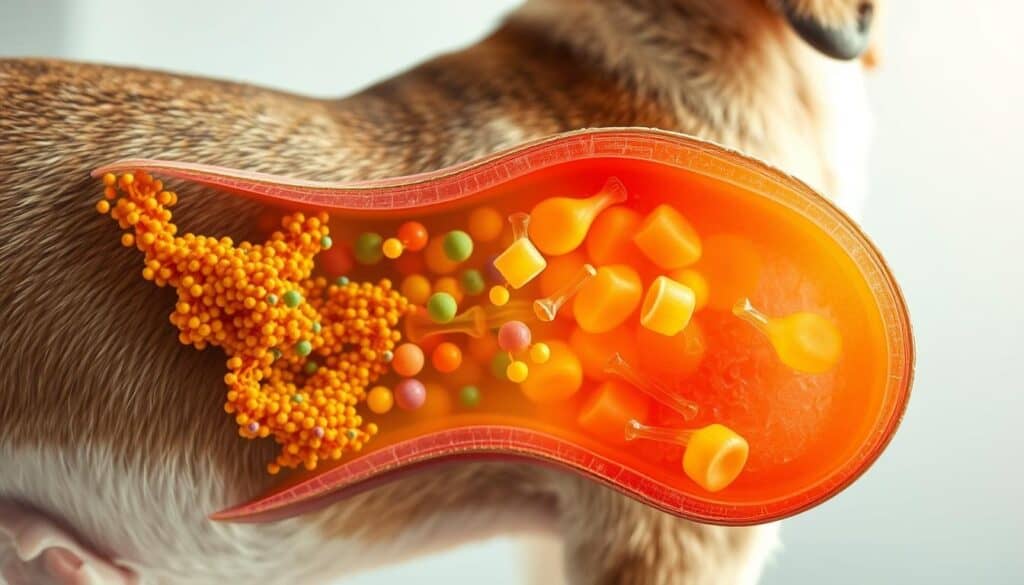
Gut-Skin Connection Explained
Beneficial bacteria in the intestines produce short-chain fatty acids that strengthen the skin’s moisture barrier. A 2023 Cornell University study found dogs with balanced gut flora had 40% fewer allergy-related scratches compared to those with poor digestion. “The microbiome acts like a communication network,” notes Dr. Ellen Choi, a veterinary dermatologist. “When it’s healthy, it signals the immune system to calm inflammation.”
Here’s how gut health impacts skin:
| Gut Function | Skin Benefit | Key Bacteria |
|---|---|---|
| Nutrient Absorption | Improved Hydration | Lactobacillus |
| Toxin Elimination | Reduced Redness | Bifidobacterium |
| Immune Regulation | Fewer Allergic Reactions | Bacillus subtilis |
Dietary factors—like those discussed in our guide on high cholesterol management—play a role in maintaining this balance. Supplements containing targeted strains can replenish good microbes, creating a ripple effect from intestines to epidermis. This approach not only soothes existing irritation but also builds resilience against future flare-ups.
Exploring the Best Dog Probiotics for Itching
Veterinarians and researchers emphasize tailored approaches to managing skin discomfort through microbial support. Studies highlight specific strains like Lactobacillus rhamnosus and Bifidobacterium animalis, which reduce inflammatory responses linked to persistent scratching. Products backed by clinical trials often combine these strains with prebiotics for enhanced efficacy.
Expert Recommendations and Research Insights
A 2023 UC Davis trial found that pets using targeted microbial blends showed 62% less itching within six weeks. Dr. Lisa Nguyen, a veterinary nutritionist, states: “Consistency matters—daily administration strengthens gut barriers, which directly calms skin reactions.” Top-rated options include:
| Product Type | Key Strains | Observed Effects |
|---|---|---|
| Powder Formulas | L. fermentum, B. longum | Reduced redness in 78% of cases |
| Chewable Tablets | L. acidophilus, S. boulardii | 50% fewer digestive upsets |
| Liquid Supplements | L. casei, B. breve | Faster coat regrowth |
Dosage, Administration, and Expected Effects
Most pets benefit from 1–5 billion CFUs daily, adjusted for weight. Powders mix easily into food, while capsules suit picky eaters. Improvements in stool quality and reduced diarrhea often appear within 48 hours, with skin changes visible after 2–4 weeks.
Pet owners report fewer vet visits and calmer behavior. However, sudden increases in scratching or lethargy warrant immediate dosage reviews. Pairing supplements with hypoallergenic diets amplifies effects, creating a holistic defense against flare-ups.
Key Ingredients and Their Benefits
Behind every effective skin support formula are carefully chosen, research-backed components. Quality supplements combine specific strains and nutrients that work synergistically to address irritation at its source. Let’s explore the building blocks that make these products impactful.
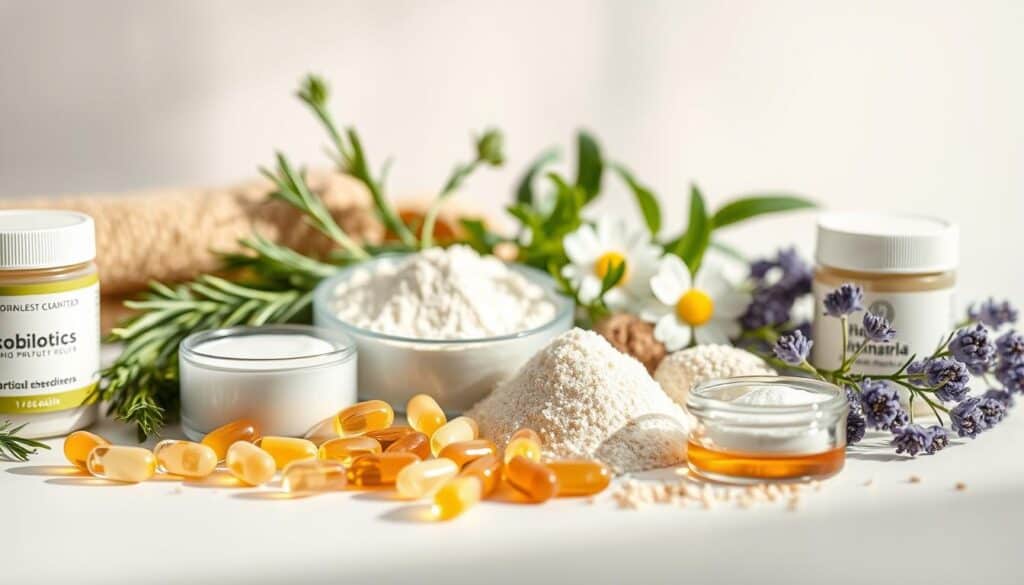
Bacillus Coagulans, Prebiotics, and Natural Fiber
Bacillus coagulans stands out for its ability to survive stomach acid, reaching the intestines alive. This hardy strain breaks down food particles, easing gas and bloating while promoting smoother digestion. Studies show it reduces inflammatory markers linked to skin flare-ups by 34%.
Prebiotics like chicory root act as fuel for beneficial bacteria. When paired with natural fibers from pumpkin or oats, they:
- Enhance mineral absorption for a shinier coat
- Stabilize bowel movements
- Strengthen gut lining integrity
Top-tier products often include these ingredients in precise ratios. For example, Pet Honesty’s Digestive Support blend combines bacillus coagulans with organic flaxseed, achieving 2x faster symptom relief compared to single-strain formulas.
| Ingredient | Primary Role | Secondary Benefits |
|---|---|---|
| Bacillus Coagulans | Digestive enzyme production | Reduces skin inflammation |
| Chicory Root | Feeds good bacteria | Boosts immune cell activity |
| Pumpkin Fiber | Regulates stool quality | Improves coat texture |
Natural components minimize adverse reactions—a 2023 Frontiers in Veterinary Science report found plant-based formulas caused 80% fewer side effects than synthetic alternatives. By understanding these elements, owners can select solutions that align with their companion’s unique health needs.
How to Choose the Right Probiotic Product
Selecting the ideal supplement for a pet’s needs requires careful consideration of quality, safety, and compatibility. Not all formulas work equally well for every animal, so a strategic approach ensures optimal results.
Expert Guidance and Label Literacy
Always consult a veterinarian before introducing new supplements. They assess underlying conditions, recommend strains targeting specific issues, and adjust dosages based on weight or age. The American Kennel Club advises owners to share their companion’s medical history during these discussions.
Third-party testing seals indicate a product meets purity standards. Look for certifications like NSF International or NASC on labels. These verify live microorganisms counts and confirm no harmful contaminants.
| Feature | What to Check | Red Flags |
|---|---|---|
| Strain Specificity | Species-matched bacteria (e.g., L. acidophilus) | Generic “probiotic blend” without strain names |
| Allergy Risks | Grain-free, soy-free options | Artificial flavors or common allergens |
| Storage Needs | Refrigeration requirements stated | No expiration date |
High-quality food additives enhance probiotic effectiveness. Avoid products with fillers like corn syrup or cellulose. Instead, opt for formulas with prebiotic fibers that nourish beneficial bacteria.
Labels mentioning immune system support often include strains like Bifidobacterium animalis, which modulate defense responses. Owners should track changes in energy levels or stool consistency during the first two weeks to gauge compatibility.
Probiotics and Overall Health Benefits for Dogs
Beyond soothing irritated skin, microbial supplements unlock a cascade of wellness advantages for four-legged companions. A balanced gut environment acts as a foundation for vitality, influencing everything from defense mechanisms to mental sharpness. Let’s explore how these tiny organisms deliver big results.
Immune System Boost and Improved Digestion
Nearly 70% of immune cells reside in the digestive tract. Beneficial bacteria train these cells to recognize threats while calming overreactions to harmless substances. “A robust microbiome is like having a personal security team for your pet’s body,” explains Dr. Sarah Mitchell, a veterinary immunologist.
Enhanced digestion follows naturally. Strains like Bifidobacterium lactis break down complex nutrients, making vitamins and minerals more accessible. This process reduces bloating and supports consistent energy levels.
| Health Benefit | Supporting Strain | Observed Improvement |
|---|---|---|
| Immune Response | L. plantarum | 28% fewer infections |
| Nutrient Absorption | B. animalis | 2x faster digestion |
| Inflammation Control | L. reuteri | 37% lower CRP levels |
Enhanced Memory and Reduced Allergy Symptoms
Surprising research links gut health to cognitive function. A 2022 University of Florida study found pets receiving daily supplements solved puzzles 19% faster. The gut-brain axis facilitates communication between these systems, sharpening focus and recall.
Allergy relief is another perk. By strengthening gut lining integrity, supplements prevent allergens from entering the bloodstream. Owners report 45% fewer reactions to pollen and dust after eight weeks of use.
“We’ve seen remarkable shifts in pets with chronic sensitivities—less scratching, clearer eyes, and renewed playfulness.”
These cumulative effects create a ripple effect. A thriving microbiome doesn’t just ease discomfort—it rebuilds the body’s resilience from the inside out.
Implementing a Probiotic Routine for Your Dog
Creating a consistent microbial support routine helps pets thrive while addressing skin and digestive needs. Simple adjustments to daily habits can maximize benefits without disrupting existing schedules.
Integrating Supplements into Daily Life
Start by mixing powdered formulas into morning meals—warm food enhances absorption. For picky eaters, try stuffing chewable tablets into treats like frozen pumpkin cubes. Liquid options work well drizzled over kibble or blended into homemade snacks.
Consider these strategies for different lifestyles:
- Busy households: Pair supplements with breakfast to establish a predictable rhythm
- Multi-pet homes: Use designated feeding stations to prevent mix-ups
- Travel routines: Pre-measure doses in portable containers
Gradual introduction prevents tummy troubles. Begin with 25% of the recommended dose, increasing every 3-4 days. Track progress using a journal to note changes in stool quality or scratching frequency.
“Within three weeks, our golden retriever stopped waking us up with midnight scratching sessions. We just mix the powder into his dinner—it’s become part of our evening ritual.”
During stressful events like vet visits or storms, temporarily increase servings by 20% to bolster resilience. Most pets adapt within 14 days, showing brighter eyes and calmer behavior. Consistency turns these small steps into lasting wellness foundations.
Conclusion
The secret to soothing irritated skin may be found in fostering beneficial gut bacteria. Research confirms that a balanced microbiome strengthens the gut-skin axis, reducing inflammation and improving comfort. Quality supplements, combined with veterinary guidance, address both digestive harmony and visible skin improvements.
Experts emphasize selecting products with clinically proven strains and clear labeling. Always consult a veterinarian to match supplements to your companion’s unique needs. Check for third-party certifications and avoid unnecessary additives—transparency matters.
Consistency transforms results. A daily routine supports lasting gut health, which reflects in softer coats and fewer scratches. Over time, this foundation enhances energy levels and immune responses.
Ready to help your furry friend thrive? Start by reviewing ingredient lists and scheduling a vet chat. Small steps toward gut health today can unlock a lifetime of tail wags and comfortable days. Thank you for prioritizing your pet’s well-being—they deserve it!
FAQ
What commonly causes itchy skin in pets?
Environmental allergens like pollen, mold, or dust mites often trigger discomfort. Food sensitivities, parasites, or bacterial imbalances in the gut microbiome can also lead to persistent scratching and irritation.
How do allergic reactions differ from infections?
Allergies stem from an overactive immune response to harmless substances, causing inflammation. Infections, however, result from harmful bacteria or fungi invading the skin, requiring targeted treatments alongside supportive care.
Why is gut health tied to skin conditions?
A balanced digestive tract supports the immune system, reducing inflammation that can manifest as skin issues. Probiotics help maintain this balance by promoting beneficial bacteria, which may alleviate symptoms like itching.
Which ingredients are most effective for managing itching?
Strains like Bacillus coagulans aid digestion and reduce inflammation. Prebiotics, such as chicory root, and natural fibers like pumpkin support gut health, indirectly improving skin and coat condition.
How long does it take to see results from probiotics?
Many pets show improvement within 2–4 weeks, though this varies. Consistency is key—daily administration alongside a nutrient-rich diet helps stabilize the gut microbiome and strengthen immune responses over time.
What should owners check when choosing a supplement?
Look for products with research-backed strains, clear dosage guidelines, and minimal additives. Consulting a veterinarian ensures the formula addresses specific needs, whether for allergies, digestion, or immune support.
Can these supplements boost overall wellness?
Yes! Beyond skin benefits, probiotics enhance nutrient absorption, reduce diarrhea, and may improve cognitive function. A healthy gut also lowers the risk of chronic conditions linked to poor microbial diversity.
How can pets adapt to a probiotic routine?
Start with small doses mixed into meals to avoid digestive upset. Gradually increase to the recommended amount, and pair with high-quality foods to maximize the synergy between nutrients and beneficial microorganisms.






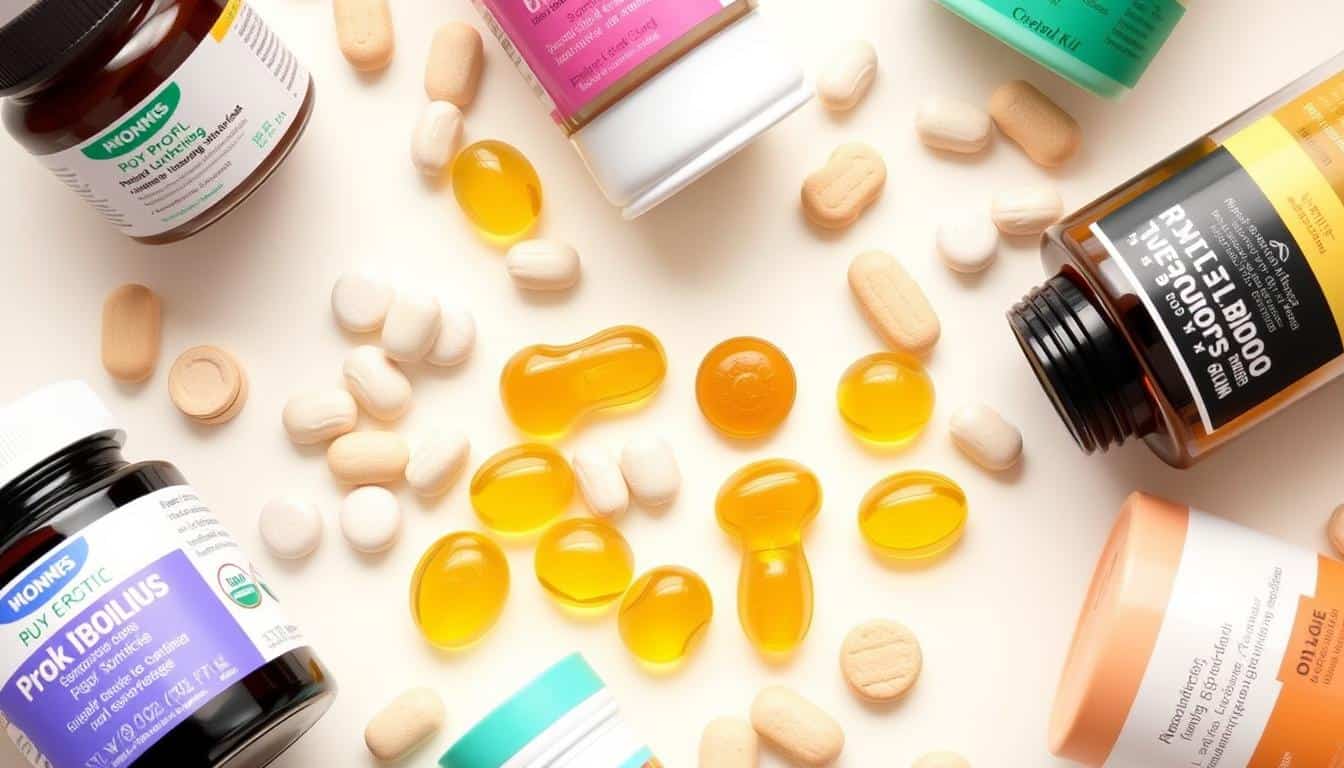


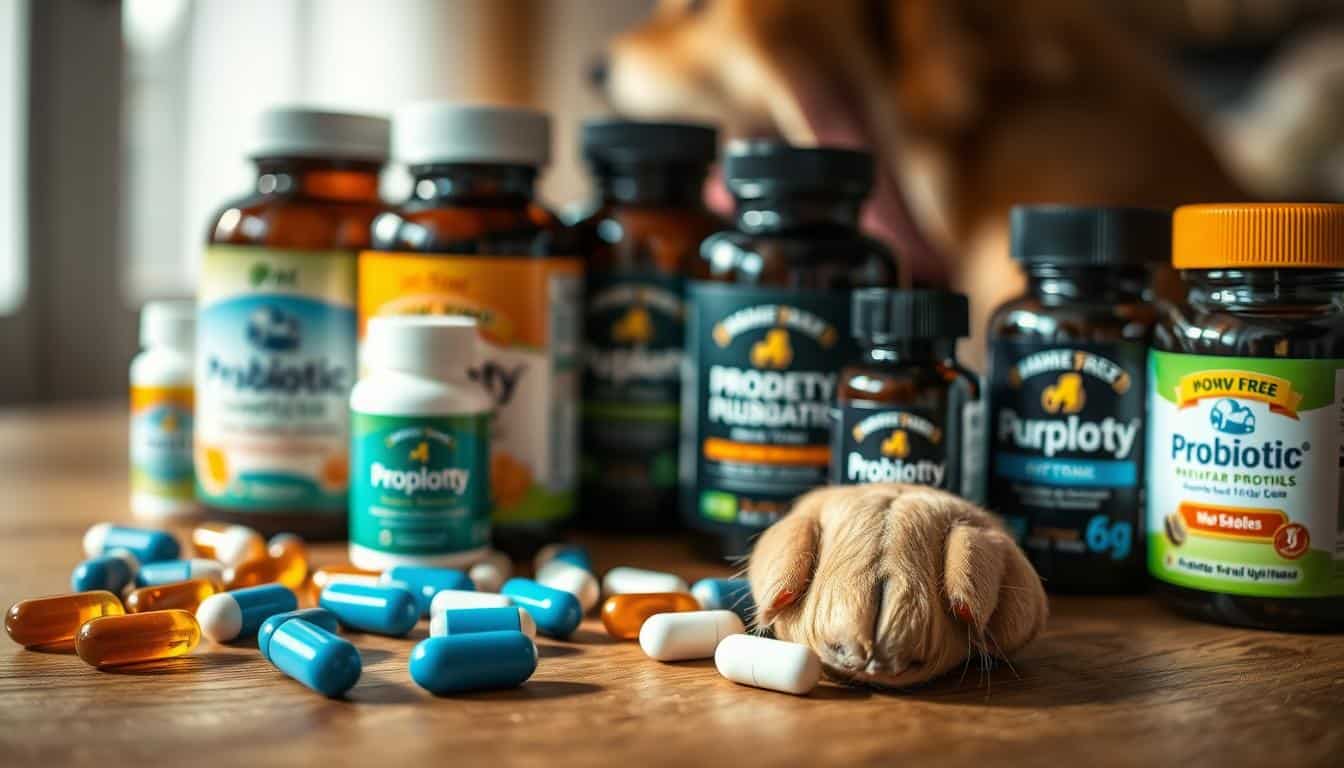


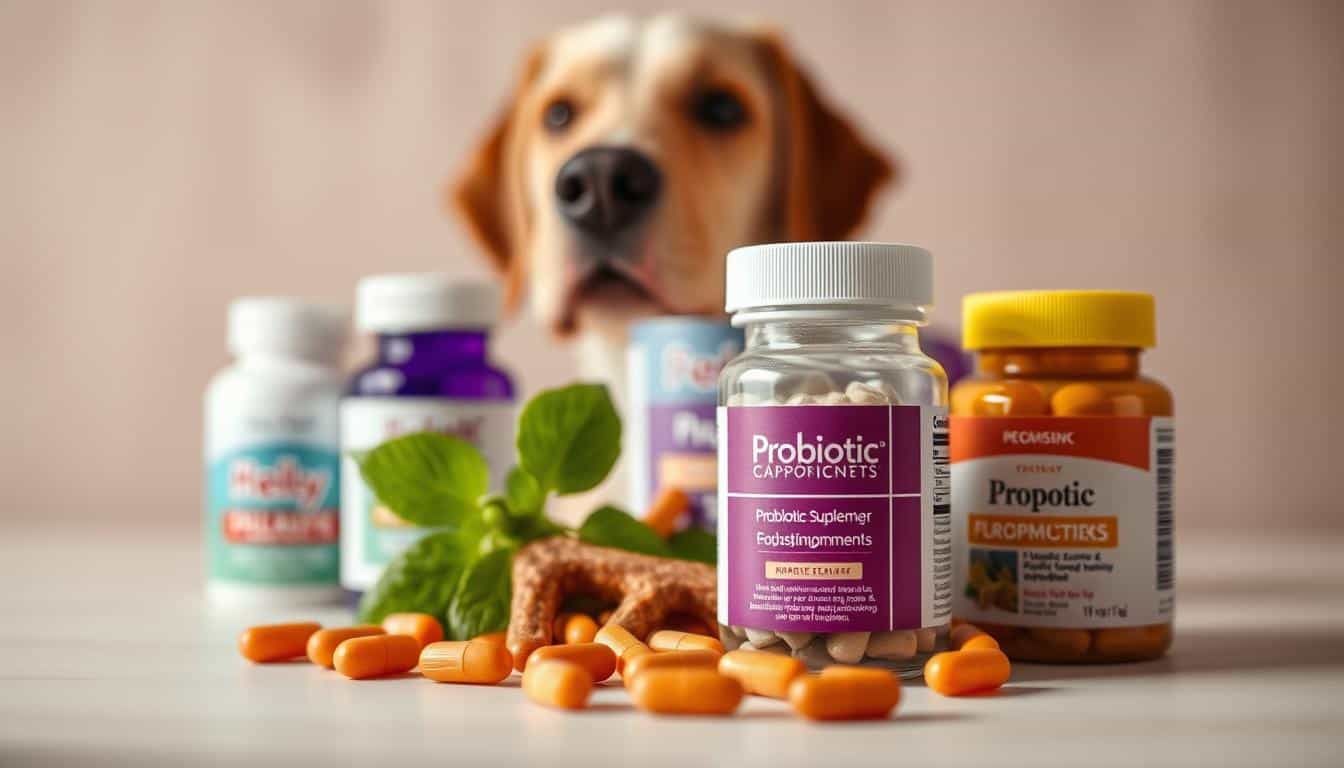
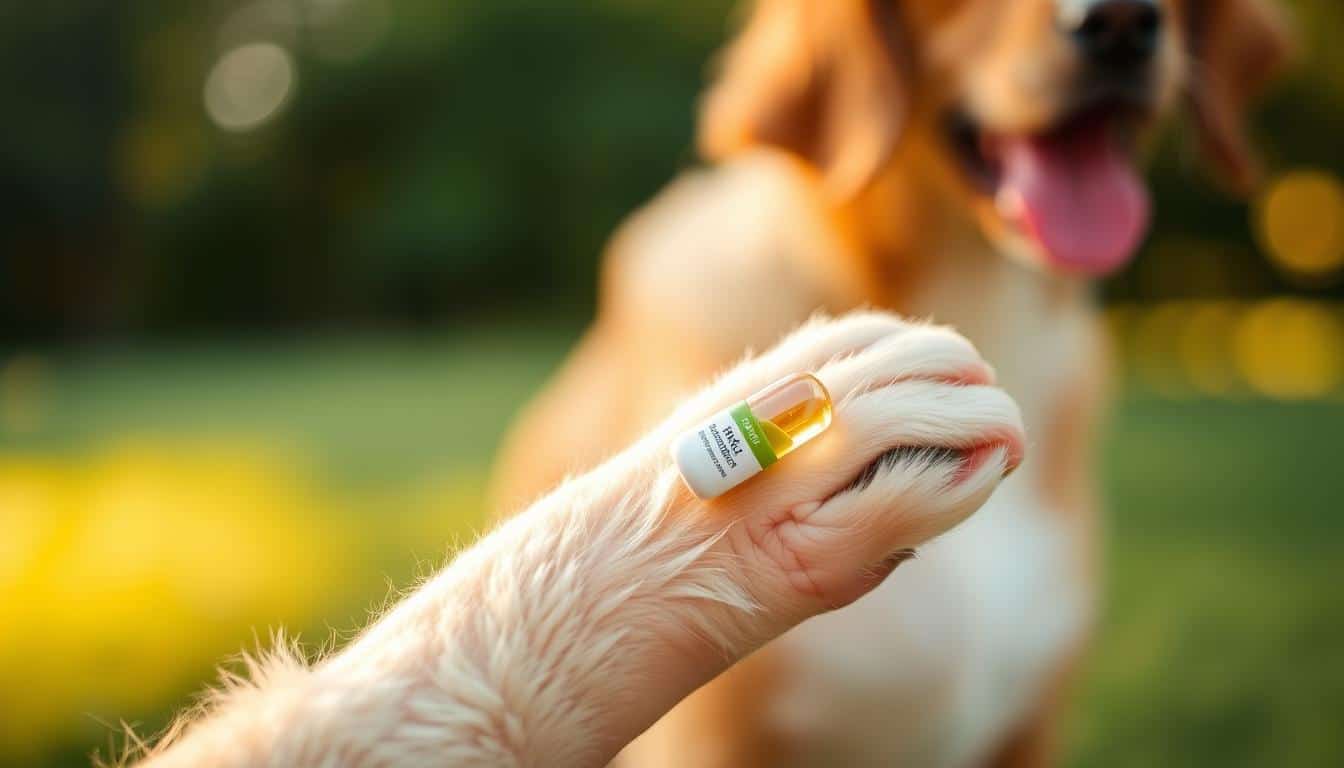
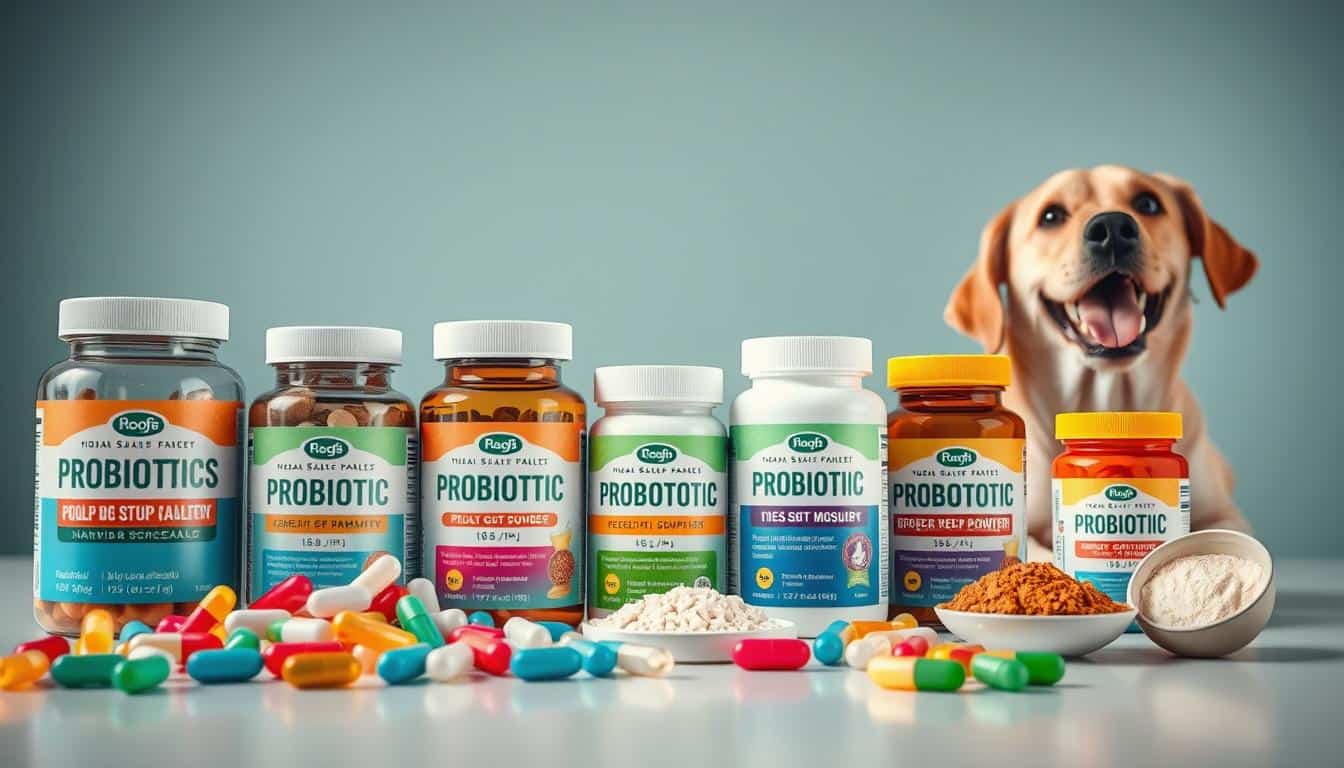

9iog8h
77vl3k
Just wanna tell that this is very helpful, Thanks for taking your time to write this.
I adore foregathering utile info, this post has got me even more info! .
There are some fascinating cut-off dates in this article however I don’t know if I see all of them center to heart. There’s some validity but I’ll take hold opinion until I look into it further. Good article , thanks and we would like more! Added to FeedBurner as well
owg13n
Great weblog right here! Also your website lots up very fast! What host are you using? Can I am getting your affiliate hyperlink to your host? I wish my web site loaded up as quickly as yours lol
I’m still learning from you, but I’m making my way to the top as well. I certainly enjoy reading everything that is posted on your website.Keep the aarticles coming. I enjoyed it!
Only wanna remark on few general things, The website style and design is perfect, the written content is very wonderful. “All movements go too far.” by Bertrand Russell.
With havin so much content do you ever run into any problems of plagorism or copyright violation? My site has a lot of completely unique content I’ve either created myself or outsourced but it looks like a lot of it is popping it up all over the web without my authorization. Do you know any ways to help protect against content from being stolen? I’d certainly appreciate it.
casino arizona poker
References:
https://yogaasanas.science/wiki/Best_Real_Money_Online_Casinos_USA_2025
gulfport ms casinos
References:
https://www.google.com.pe/url?q=https://www.orkhonschool.edu.mn/profile/maddoxvykmatzen82350/profile
online casinos canada
References:
https://socialbookmark.stream/story.php?title=top-australian-online-casinos-for-real-money-list-for-2025
blackjack promotions login
References:
http://www.xiaodingdong.store/home.php?mod=space&uid=2867818
paypal casinos
References:
http://lh.hackp.net/home.php?mod=space&uid=595321
holland casino amsterdam
References:
https://500px.com/p/gloverzcvcasey
Wow! This blog looks exactly like my old one! It’s on a completely different subject but it has pretty much the same layout and design. Great choice of colors!
I have not checked in here for some time because I thought it was getting boring, but the last few posts are good quality so I guess I’ll add you back to my everyday bloglist. You deserve it my friend 🙂
olympic casino poker
References:
https://www.google.pt/url?q=https://intensedebate.com/people/sodawatch08
gladiator slot
References:
http://t.044300.net/home.php?mod=space&uid=2351358
belle isle casino
References:
https://www.google.co.cr/url?q=https://whittaker-foreman-2.thoughtlanes.net/14-best-restaurants-in-caesars-palace-2024
Alright, so I stumbled upon mcwcasinobj388 and had a good time. Some cool slots and the live casino wasn’t bad either. Give it a shot if you’re feeling lucky! Link here: mcwcasinobj388
jungle slots
References:
https://squareblogs.net/smokecanada61/paris-las-vegas-resort-and-casino-review-ultimate-guide-to-amenities-dining
casino games for ipad
References:
https://images.google.so/url?q=https://aryba.kg/user/supplyreport93/
eldorado casino
References:
https://images.google.ms/url?q=https://pad.geolab.space/s/X12TrdZoZ
online roulette australia
References:
https://bookmarkingworld.review/story.php?title=%E2%80%8Ehollywood-casino-real-money-app
hialeah park casino
References:
https://md.un-hack-bar.de/s/_3N4zJmQ7O
wendover casinos
References:
http://qiaoxiaojun.vip/home.php?mod=space&uid=1760671
marksville casino
References:
https://diego-maradona.com.az/user/hallpart18/
wolf run slots
References:
http://bbs.lingshangkaihua.com/home.php?mod=space&uid=4154936
best penny slot machines to play
References:
https://pad.stuve.uni-ulm.de/s/ZW7CwIoMn
Smart bankroll management is key in any online game! Seeing platforms like jl boss focus on user experience and verification builds trust – essential for responsible play. Fun selection of games too! 🤔
I like this web site very much, Its a really nice position to read and obtain information. “It is impossible for a man to learn what he thinks he already knows.” by Epictetus.
Everything is very open and very clear explanation of issues. was truly information. Your website is very useful. Thanks for sharing.
Hey There. I found your blog using msn. This is a very well written article. I’ll make sure to bookmark it and return to read more of your useful information. Thanks for the post. I’ll definitely return.
Utterly composed subject matter, appreciate it for selective information. “The last time I saw him he was walking down Lover’s Lane holding his own hand.” by Fred Allen.